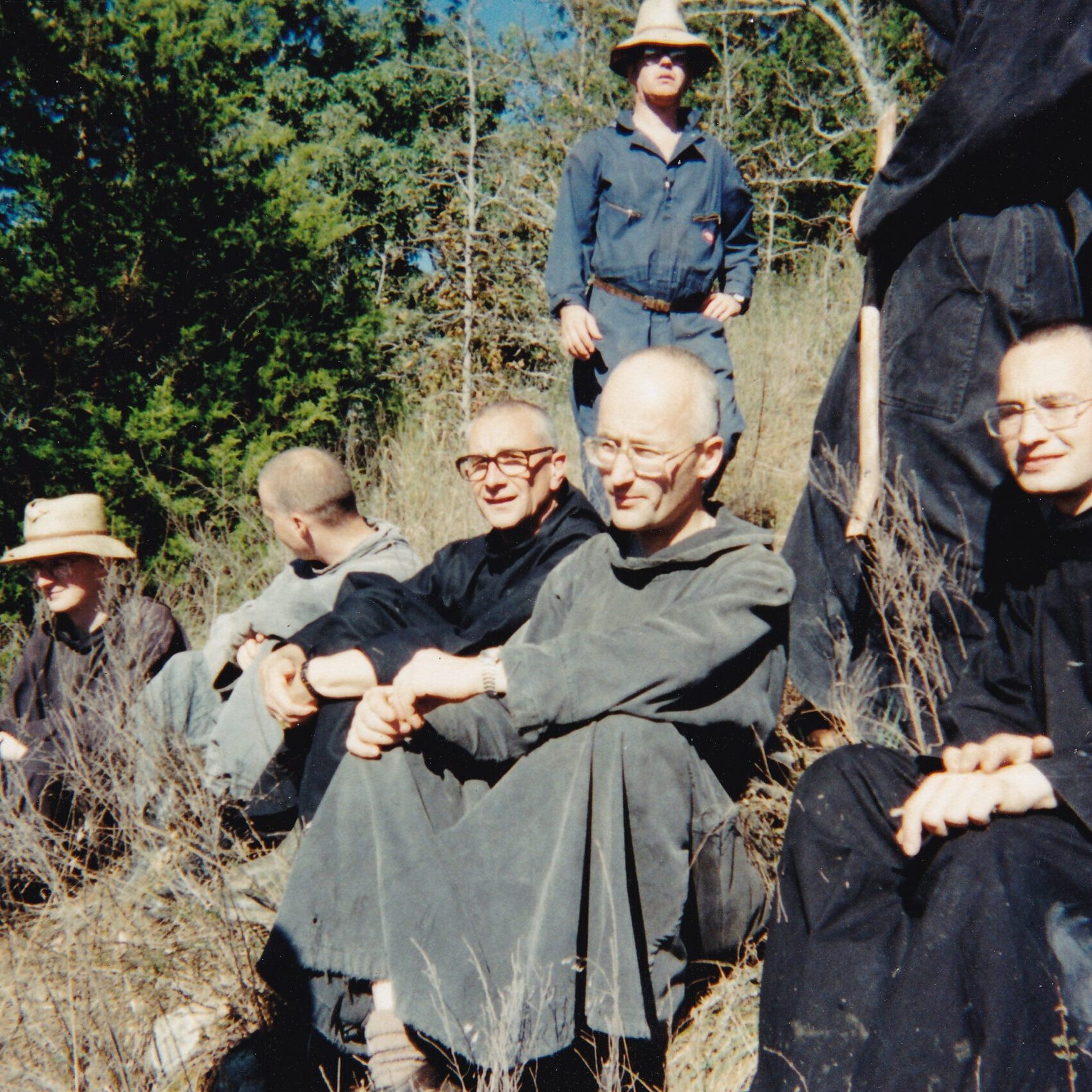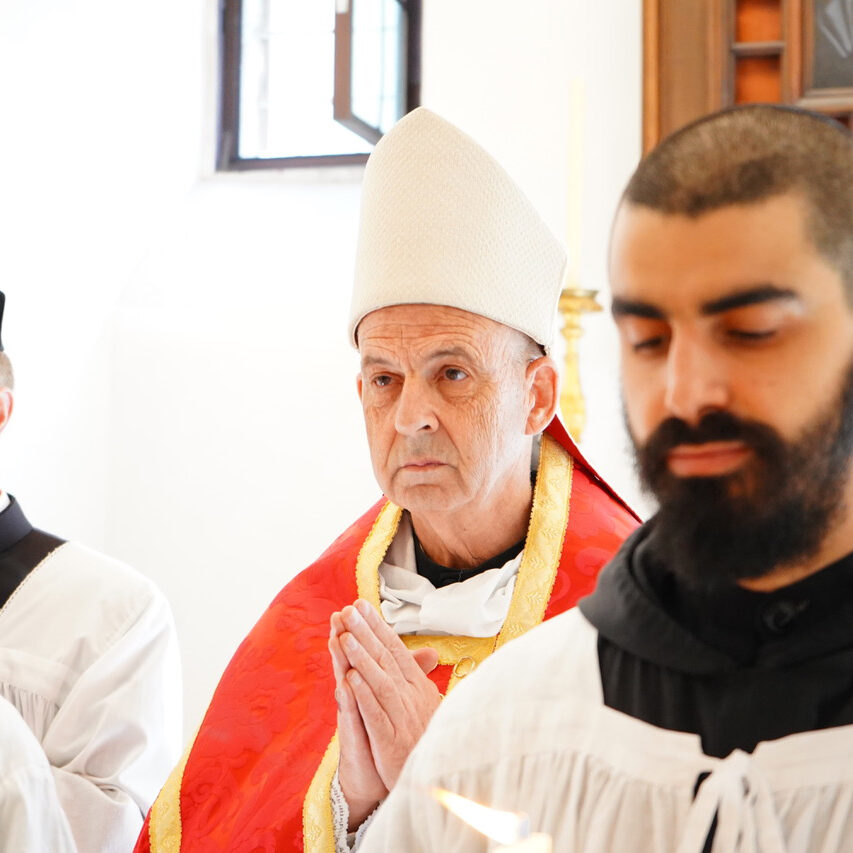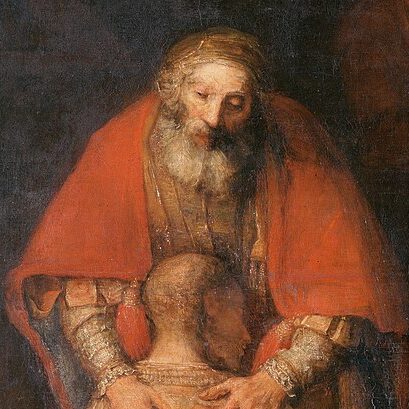Dear Friend of Clear Creek Abbey,
In an essay entitled The Idea of a Pilgrimage, Hilaire Belloc, who had a certain personal experience of the thing, takes us beyond the mere definition and into the fuller, incarnate, sense of what it means to go on pilgrimage:
There has always hung round the idea of a pilgrimage, with all people and at all times – I except those very rare and highly decadent generations of history in which no pilgrimages are made, nor any journeys, save for curiosity or greed – there has always hung round it, I say, something more than the mere objective. … I will visit the grave of a saint or of a man whom I venerate privately for his virtues and deeds, but on my way I wish to do something a little difficult to show at what a price I hold communion with his resting-place, and also on the way I will see all I can of men and things; for anything great and worthy is but an ordinary thing transfigured, and if I am about to venerate a humanity absorbed into the divine, so it behoves me on my journey to it to enter into and delight in the divine that is hidden in everything. (Hilaire Belloc, Hills and the Sea, 1906)
The idea of going on a pilgrimage is, of course, nothing new in England. The poet Geoffrey Chaucer had immortalized the most popular of these in his Canterbury Tales:
When April with its sweet-smelling showers
Has pierced the drought of March to the root,
And bathed every vein in such liquor
By which power the flower is engendered;
When the West Wind too with its sweet breath,
In every wood and field has breathed life into
The tender new leaves, and the young sun
Has run half its course in the Ram,
(…)
Then folk long to go on pilgrimages,
And palmers to seek foreign shores,
And distant shrines, in various lands;
And especially from every shire’s end
Of England to Canterbury they trek,
To seek the holy blessed martyr,
Who helped them when they were sick.
(Geoffrey Chaucer, Canterbury Tales, Prologue [translation])
Closer to us in time, the French convert and writer Charles Péguy reawakened interest in the pilgrimage to Chartres cathedral. After obtaining from the Blessed Virgin the cure of his son, he set out in thanksgiving with a few friends in 1912 to walk the 90 miles that lay between Notre Dame cathedral in Paris and Chartres. In 1935, 15 students made the journey; in 1950 there were 6,000; in 1962 they were 20,000. Like Chaucer, but in his own ineffable style, Péguy paints a picture in words of this spiritual journey under the gaze of Our Lady:
Star of the sea, here is the heavy plain
And the deep swell and the ocean of wheat
And the shifting foam and our laden granaries,
Here is Your gaze over this immense cope
(…)
Thus we sail towards Your cathedral.
Shimmering in the distance a string of millstones,
As round as towers, solid and solitary
Like a row of castles on the flagship.
Two thousand years of toil have made this land
An endless repository for the new ages.
(…)
It is the unblemished stone and the faultless stone,
The highest orison ever raised towards the sky,
The straightest reason ever cast forwards,
And into the limitless sky the highest line.
(La Tapisserie de Notre-Dame, “Présentation de la Beauce à Notre-Dame de Chartres”, 1913 [translation])
On October 23, Our Lady of Clear Creek Abbey hosted a solemn Mass, celebrated by His Excellency James Conley, Bishop of Lincoln, concluding the Three Hearts Pilgrimage. A thousand pilgrims (literally) came this year to participate in the now annual event. Some of them walked the entire 35 miles barefoot! With banners raised they streamed into the abbatial church singing the Salve Regina, as the bells continued ringing nearby. Cardinal Raymond Burke, who was scheduled to be with us until he fell ill a few weeks earlier, sent a personal message to the participants, emphasizing the importance of this pilgrimage to promote the family, so endangered in our day, under the patronage of the Sacred Heart of Jesus, the Immaculate Heart of Mary, and the Most Chaste Heart of Joseph.
It is thanks to the unfailing help, both spiritual and material, that you have given to the monks, that we are now able to receive a large pilgrimage at Clear Creek. Moving forward, we hope to complete the monastery and, especially, the church, so we will be even better able to provide this spiritual hospitality to so many people that are flocking here. May God ever bless you and yours in your own pilgrimage through this life on earth.
br. Philip Anderson, abbot
Notes from Father Cellarer:
—Thanks to your generosity, our building fund has now reached $9.4 million toward the total of $12.7 for our Chapter House under construction.
—Due to the current slowdown of the supply chain in America, our 2022 calendars may be late in getting to you this year, but we hope to have them to you by Christmas!






